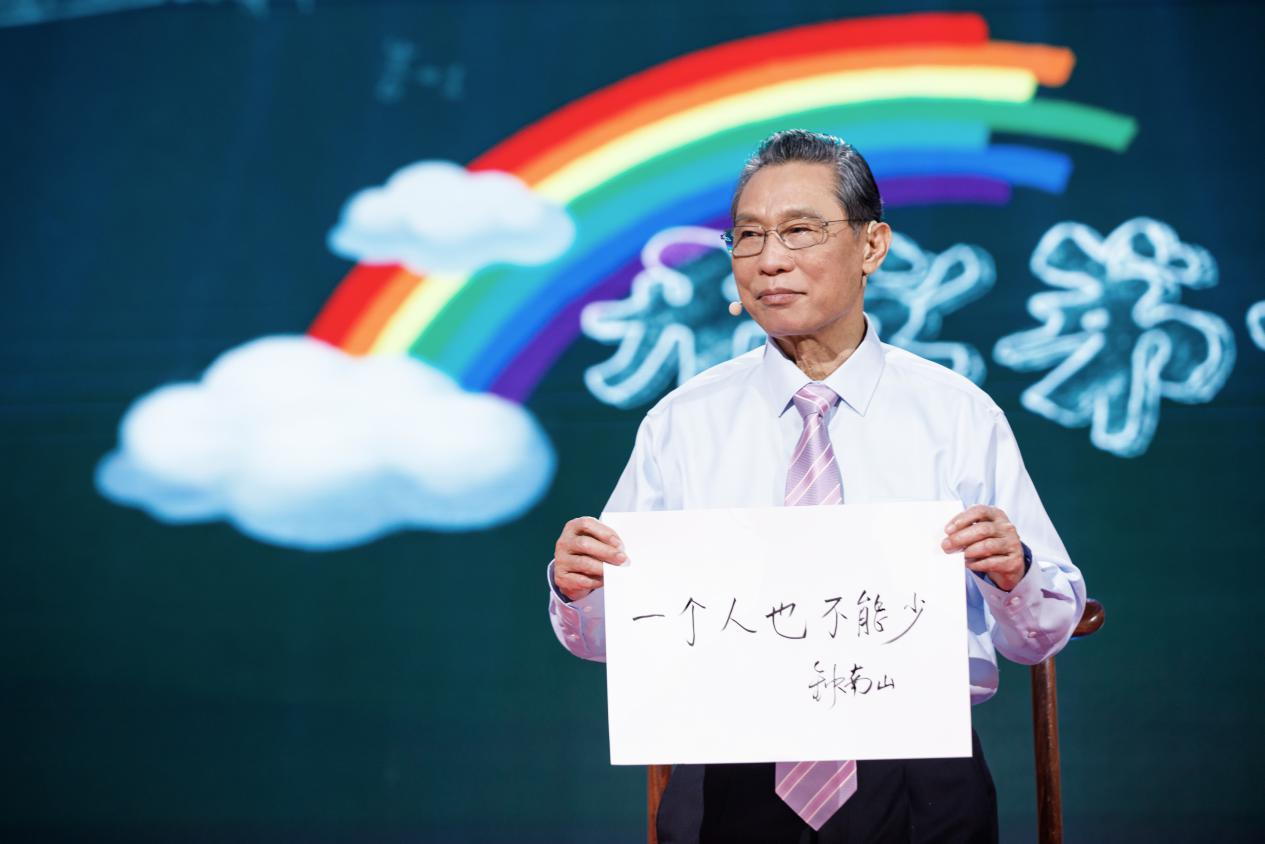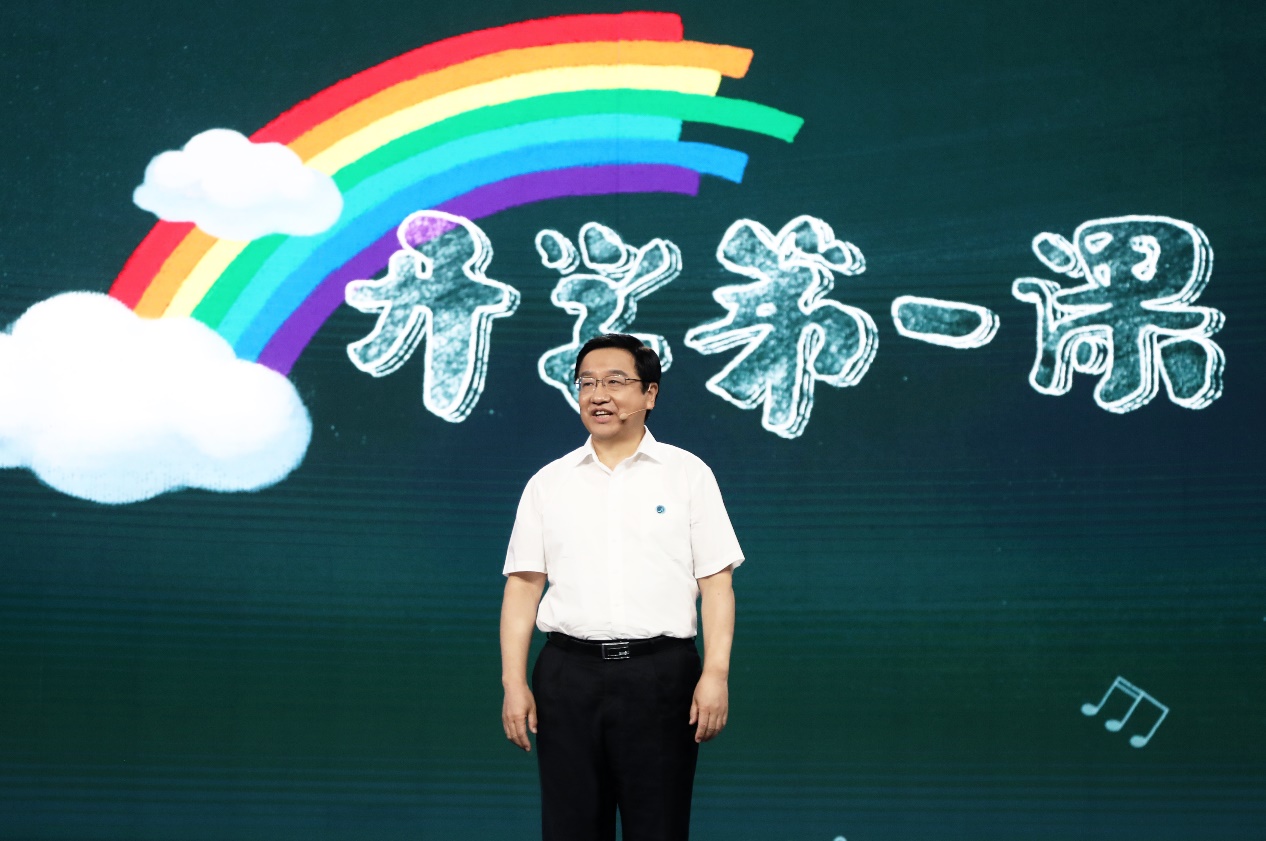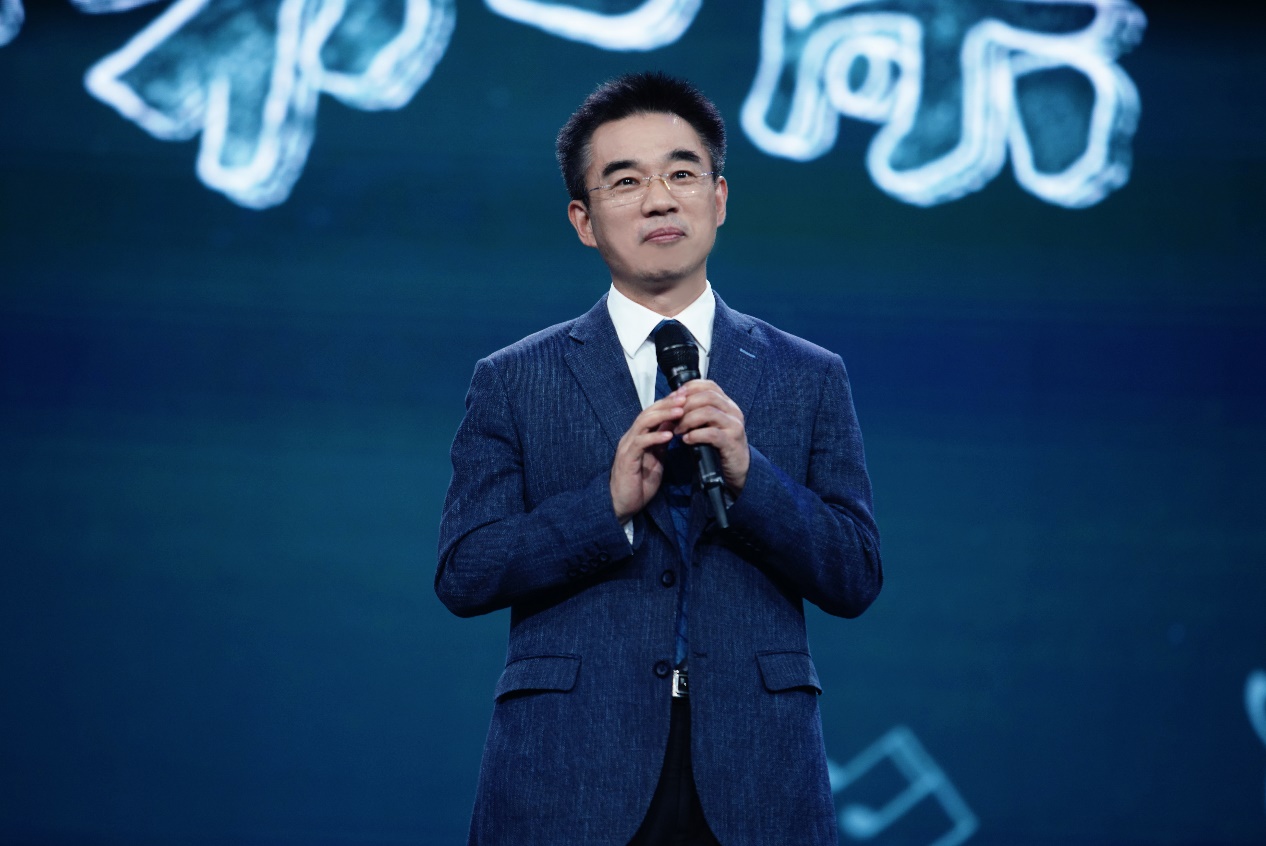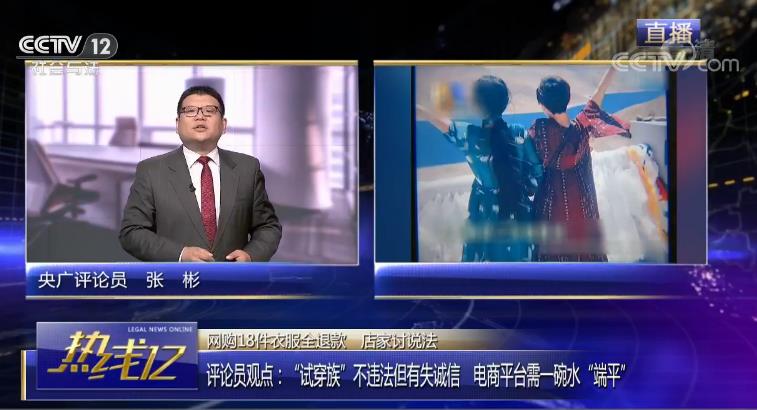The Public Opinion Field in Anji Prefecture in 1275
In October of the second year of Baoqing in the Southern Song Dynasty (1226), Li Zong avoided the pronunciation of "Hu", so he changed Huzhou to Anji Prefecture (History of the Song Dynasty, Volume 41, Biography of Li Zong) for peace and good luck. From this, we can see some kind of fear and luck hidden in the heart of Li Zong. Eight years later, Duanping failed to enter Luo, and Mongolia Wokuotai launched a massive attack on Song, which was the root of Li Zong’s fear. Gangfeng started at the end of Qingping, and in the first year of Deyou (1275), this secret ripple in the heart of Lizong once again appeared in the hearts of officials and people in Anji, but there was no luck, only fear.
Twenty years ago, the people in the Southern Song Dynasty lost confidence in the country when they were ruled by Li Zong. The Song and Meng Dynasties fought for many years, and there was no end to the war outside Li Zong, and Yan Guifei, Ma Tianji, Dong Songchen and Daquan Ding were favored inside, so that some people wrote a book on the Chaomen, "When Yan Martin was arrested, the country would die" (Volume II of the Song Dynasty Three Dynasties). Xiangyang fell two years ago-140 years since Yue Fei recovered Xiangyang in Shaoxing four years (1134), 35 years since Meng Gong recovered Xiangyang in Jiaxi three years (1239), 23 years since Li Zengbo recovered Xiangyang in Chunyou eleven years (1251), and 6 years since surrounded Xiangyang in Xianchun four years (1268)-Xiangyang This is the basis "(Wang Zengyu’s Collation of the Continued Editions of the Jin Dynasty in Hubei Province, Volume 10), Meng Gong said that" Xiang (Yang) Fan (City) is the foundation of the imperial court "(The History of Song Dynasty, Volume 496, Biography of Meng Gong), and Li Zengbo’s inscription on Le Shi after recovering Xiangyang also refers to its land as the eternal barrier of the Southern Song Dynasty:" Da Song Chun ". In the third year of Yue Dynasty, the first day of the first month was inscribed in Xian. Its inscription says: it is strong and strong, and its spine is north and south. Geheye, several ling valleys. Do what you can, and peel it off. For thousands of years, screen our country. "
Li Zengbo Ji Gongming (at the foot of Zhenwu Mountain in the southwest of Xiangyang today)
Naturally, people of insight in Mongolian and Yuan dynasties also saw this. At the beginning of Kublai Khan’s accession to the throne in 1260, Guo Kan, Chen Ping and Song Zhice pointed out: "Song occupied the southeast, made wuyue his home, and its important place was Jingxiang. Today’s plan, we should first take Xiangyang, not only overcome Xiangyang, Biyang, Lucheng, but also ignore the small ears, and go straight to Lin’ an, where the thunder is too fast to cover our ears, and Jianghuai and Bashu will not attack themselves. " (History of Yuan Dynasty (Biography of Guo Kan in 149) By the end of the fourth year of Yuan Dynasty (1267), Liu Zheng had reduced Yuan, and he also suggested that "Xiangyang should be attacked first" because "when Xiangyang was broken, Lin ‘an would be shaken" (History of Yuan Dynasty (Biography of Liu Zheng in 161). Therefore, the fall of Xiangyang is tantamount to announcing the demise of the Southern Song Dynasty to all the people in the world, including the people of Anji.
1275 was the first year after Emperor Gong ascended the throne, but the five-year-old little emperor could not bring people new hope. The officials and people of Anji all think that the destruction of the country and the destruction of the city are at stake. Because, from the first day of this year, Song Jun was defeated, surrendered, killed or committed suicide in the front line. The news is getting closer and closer to me, and the footsteps of the Yuan army seem to have been clearly audible in my ears: Chen Yi, the envoy along the Yangtze River and the governor of Huangzhou (now Huanggang City, Hubei Province), was busy to surrender 30 kilometers away two days ago, and finally rushed to the city to lower the yuan on New Year’s Day (that is, the first day of the Spring Festival). On the 13th day of the first month, two days ago, Lu Shikui, who had just been appointed as the minister in charge of the Ministry of Justice and the military counsellor of the Governor’s Office, and Qian Zhensun, the envoy of Jiangxi Anfu and Zhijiangzhou (now Jiujiang City, Jiangxi Province) sent people to surrender when the Yuan army was still 100 kilometers away (now Qichun County, Hubei Province). Hu Menglin, the commander of Zhishou Changjun, ruled Jiangzhou and committed suicide. On the 17th day of the first month, Fan Wenhu of Anqing Prefecture sent someone to Jiangzhou, 150 kilometers away, to meet the teacher. After Yuan Army entered the city, he was sentenced to death by drinking medicine in Xia Chair. As if in a competition, on the 26th of the first month, Zhang Lin, the commander of Chizhou (today’s Guichi City, Anhui Province), sent someone to Jiangzhou, 200 kilometers away, and the Yuan army entered the city. Zhao Maofa, the owner of Quanzhizhou, hanged himself with his wife.
On February 19th, the Yuan Army defeated Song Jun in Dingjiazhou (now Tongling North, Anhui Province). The commander-in-chief of the Song Dynasty was Jia Sidao, who was called "Duke of Zhou" by the officials and "Xianggong of Cricket" by the people. Therefore, there was a cloud of scorn at that time, and a gong sounded on Ding Jiazhou, which frightened Jia myna away. The message is that the Duke of Zhou has become a woman of Zhou "(Sun Jifang’s History of the Rocky Garden, Volume III). After this battle, the Song Dynasty completely lost the ability of large-scale counterattack. On February 21st, the Yuan army came to Raozhou (now Poyang County, Jiangxi Province), and Tang Zhen, the year of knowledge, and his family were all killed. Jiang Wanli, the former left-wing prime minister, committed suicide by drowning himself, and ordered all roads to descend with the city. Zhao Cheng, the ambassador of the system along the Yangtze River, Hong Qiwei, the governor of Zhenjiang (now Zhenjiang, Jiangsu), Zhao Yuke, the governor of Ningguo (now Xuancheng, Anhui), and Wu Yi, the governor of Longxing (now Nanchang, Jiangxi) all abandoned the city and fled, while Wang Xi, the governor of Hezhou (now Anhui and County), fell to the city. On the second day of March, the capital controlled Xu Wangrong to welcome the Yuan Army into Jiankang House (now Nanjing, Jiangsu). The next day, the Yuan army attacked Wuxi, and Ruan Ying, the magistrate of a county, had to fight, and the whole army was wiped out. Ruan Ying had to go to the water to commit suicide. On March 11th, knowing that Zhao and Jian in Changzhou fled, the citizens of Changzhou raised money to raise the city and lower the yuan. On March 14th, Zhiping Jiangfu (now Suzhou City, Jiangsu Province) went down to the city to make friends, pass sentences on Hu Yu and Lin Boring. On the first day of June, Zan Wanshou raised Jiading to lower the yuan. On July 26th, Zhang Zhensun of Wuzhou (now Jinhua City, Zhejiang Province) was sentenced to flee when he heard that Yuan Bing had arrived. In November, the war finally burned in front of the people of Anji Prefecture-Anji Dushongguan is the key to traffic from Jiankang to Lin ‘an (now Hangzhou, Zhejiang Province), which has been contested by military strategists since ancient times. On the 23rd, Dushongguan was breached.Feng Ji, the garrison commander, died in battle, and Zhang Juan fled, and the neighboring cities fled (History of the Song Dynasty, Volume 47, Biography of Ying Guogong). Lin ‘an, the capital of the Southern Song Dynasty, is only 60 kilometers away.
In 1275, people in Anji also heard the news that many senior officials of the imperial court fled. They couldn’t tell whether it was a rumor, especially at the beginning of the year when it was rumored that Zhang Jian, the right prime minister, had abandoned his official position and fled. They couldn’t believe it-of course, they believed it-and even had an impulse to catch up and ask, "Will you run a little early?" On March 19th, Zuo Si admonished Pan Wenqing, You Zhengyan Jike, Tongzhi Privy Council Zeng Yuanzi, Zhejiang transshipment agreement Xu Zi, and Zhejiang East appeased Wang Linlong to escape one after another. Ni Pu, the Privy Council member who signed the book, even satirized the Taiwanese minister to impeach himself, hoping to be banished from the capital, but he fled in a hurry when he couldn’t wait to play.
Similar news is increasing in the second half of the year. On July 22nd, Chen Yizhong, the prime minister of Zuo, fled, but he was not sent by envoys for many times. The Empress Dowager personally wrote to his mother, and did not return to Korea until October (and later fled again). On the fourth day of August, you zhengyan and Xu zhifang fled. On the fifth day of November, Zeng Wei, the householder, resigned without approval and fled. On November 19th, does assistant minister Chen Jingxing resigned without approval, so he fled. On November 28th, Wang Yinglin, the minister of Quanli Department, fled. The next day, Prime Minister Liu Mengyan fled, and the imperial court sent three envoys to call him back to the DPRK, but he did not arrive. On December 24th, Ding Yingkui, the senior minister of the official department, and Xu Zongren, the left assistant minister, fled (History of the Song Dynasty, Volume 47, Biography of Ying Guogong). If the journey is fast, they can also get home to spend the Spring Festival with their families.
In 1275, Anji people also saw several very strange astronomical phenomena, which was quietly revealed to be related to the upcoming regime change. On the evening of March 16th, there were two bright stars "fighting in the middle of the sky, and one star fell" (History of Song Dynasty, Volume 47, Biography of Ying Guogong). Press: The History of Song Dynasty (Volume 60) and Tianwenzhi XIII are recorded as "Ding Hai in February". On the evening of April 22, "a big star flowed from the northeast of the heart." The heart refers to the heart, and "inflow" means infringement, and the heart represents the emperor and the prince. On April 24, "I was puzzled by the sky." Staring is Mars, and the Lord punishes it (Wang Chong’s "On Balance, Becoming Virtual"). Tianjiang is nine planets, Tianjin, also known as Tianhan. nine planets, Tianjin is a female hostel, and the female hostel is divided into Yangzhou (Historical Records, Volume 27, Tianguanshu), including the south of Huaihe River, the middle and lower reaches of the Yangtze River and Lingnan, which is the ruling area of the Southern Song Dynasty at this time. On August 20th, "Ying Ying made an attack on the south" (History of Song Dynasty, Volume 47, Biography of Ying Guogong). The Song Dynasty proverb says that "Mars entered the southern bucket, and the son of heaven went down to the temple" (History of the Song Dynasty, volume 280, Biography of Tian Shaobin), and the main reason is that "China was greatly troubled by soldiers" (Kaiyuan Zhanjing, volume 32). On July 13th, "See you in Taibai". Taibai is Venus, and it is "a penalty star" with Mars (Book of the Later Han Dynasty, Volume 30, Biography of Xiang Kai). "Too white in the afternoon is called Jingtian, which means that the discipline is chaotic, the world is chaotic, the government is changed to the king, the people are in exile, their sons are abandoned, and they go to their villages … Jingfang’s" Disasters "says: If a person is ungrateful, cowardly and incompetent, it will be too white, and it will change after Jingtian. If you don’t save, it will move around and invade." (Volume 46 of Kaiyuan Zhanjing)But the most frightening thing is the first day of June, when there was a solar eclipse. Although it was broad daylight after the eclipse, it was as dark as night. This darkness, which should have been bright, left a deep impression on Anji people, making them constantly recall their uneasy mood after many years. The next day, Empress Dowager Tai wrote a letter to remove the word "Shengfu" from the honorific title "Shouhe Shengfu" in order to be warned by heaven (History of Song Dynasty, Volume 47, Biography of Ying Guogong). Did she feel uneasy, too
Jian Caiwang’s suicidal intention
In fact, Li Geng, Anji people’s own prefecture, abandoned his official position and fled. His predecessor, Zhao Bihuai, took office in the seventh year of Xianchun (in 1271, Wanli’s Records of Huzhou, Volume 9), and later entered the DPRK as Jin Bulang, who later learned about Huizhou (Chongzhen’s Records of Xing Wu, Volume 5) and "arrived at the official in the first month of Deyou’s first year (in 1275)" (Hongzhi’s Records of Huizhou, Volume 4). His successor, Zhao Liangchun, said in the History of Song Dynasty that "at the end of Xianchun, courtiers suggested that the imperial clan should be built in Neixian County as a screen, so they knew Anji Prefecture except Liangchun", and Wanli’s Huzhou Prefecture recorded his "appointment in the first year of Deyou". It seems that the courtiers suggested that the imperial clan be built, except that Zhao Liangchun knew about Anji Prefecture at the end of the tenth year of Xianchun, and Zhao Liangchun’s appointment to Anji Prefecture was at the beginning of Deyou Yuan. Will Zhao Liangchun run away like Li Geng? It’s said that Wang Cai, a general judge of Anji, must have thought about this new boss.
There are very few records about the life of Jian Caiwang in the ancient books handed down from ancient times, except that he is a "Shu man" (on the volume of the sequel to Gui Xin Miscellaneous Knowledge). Fortunately, the famous "underwater forest of steles", Baiheliang in the Yangtze River north of Fuling, Chongqing, has his own inscription: "Fu is rich in stone fish; With the abundance of age, it is still good to show the virtue of satrap. It’s no accident that the town of Liu Gong and Shu Zi in Changning is a state and a country. Don’t drive Tongchuan’s materials, and hope that Huang Youliu will transfer his poems to the discipline … "According to this, he is a" Tongchuan "(ruling Santai County, Sichuan Province today). According to the inscription of Liu Shuzi in Fuzhou, it is said: "… In the second year of the reign of Saint Song Baoyou, the day after the waxing moon in Jiayin, beginning of spring, the county pretended to be the guardian of Liu Shuzi in Changning, and took a boat to see you off on the river, crossing Shiyupu to search for the old relics, and then Pisces had already seen it, which was a sign of good years. I read an ancient book in the sand, so I was lucky enough to have a poem inscribed by Liu Gong Zhongshun, the chief guest of Shangshu … "It can be seen that Jian Cai looked at the word" Jun Hou ",and in the second year of Bao You (1254), he was here as a" driver ",that is, he was sentenced to the post of Fuzhou. "Talent aspiration" means talent and fame, or winning fame with talent and virtue. Then "Jun Hou" may also be a subtle expression of "Jun Hou". This can be seen in the family background of Tong Tong. The first time that Jian Caiwang appeared in the literature records was in Liu Kezhuang’s refutation document: "The quasi-Chinese book was sent to Liuhuang Road under the door, so that it could pass judgment on Huai ‘an State for Zhao Rujun, the minister of Jian Caiwang, and make him write, and he must be heard." (Liu Kezhuang’s "The Complete Works of Mr. Houcun", Volume Bayi) When Zhao Ru-lun passed the judgment that Huai ‘an State’s performance was written in the sixth year of his Chunyou (1246), then the court changed its position for the year.Since then, there has been a transfer to Fuzhou.
Inscription on the inscription of the coffin (underwater forest of steles-Baiheliang, edited by Chen Xizhen, Sichuan People’s Publishing House, 1995)
Inscription by Liu Shuzi (same as above)
The only mention of Jian Caiwang in history books was in June of the ninth year of Xian Chun (1273), when he served in Zuozang Dongku of the imperial court. At that time, he wrote a letter to the throne, saying that "there are seven people who can worry about border affairs, and five people who are anxious" (Song History, Volume 46, Du Zong Ji). Jian Caiwang has served as a judge in Sichuan, which has been at war with Meng Yuan for many years, so what he said is worrying and urgent, but it is a pity that the specific content is unknown. Of course, he speaks lightly, and the result is naturally that he does not report it. At the end of February, the first year of Deyou (1275), it was decided that Anji Prefecture would return to Jiande House (the sequel to Gui Xin Miscellaneous Knowledge), and Jian Caiwang would take over at this time. Therefore, Jian Cai didn’t see Anji for a long time, and he sometimes inevitably guessed the causal relationship between the imperial court sending him to Anji and his own writing.
Jian Caiwang believes that Anji officials in the first year of Deyou (1275), like him, must have considered what to do when the Yuan Army came. And like him, there are only three options: escape, death and surrender. Which one do you choose? Jian Caiwang made up his mind and repeatedly "resolutely vowed to die" in front of superiors, colleagues, subordinates and even ordinary people. Sometimes some people don’t want to listen and shake their hands and step away, but most people listen carefully and project admiration to him. In the daily repetition, Jian Caiwang feels that life is very meaningful.
In order to better spread the effect, Jian Caiwang made a big tin card engraved with the words "Jian Caiwang, a loyal minister of the Great Song Dynasty". Also, "two crowns of silver"-most of the silver coins in the Tang Dynasty were crowns of silver plates, so the unit of measurement was crowns; The shape of the Song Dynasty changed, copying the original measurement name, and at the same time, a new measurement name "collar" came into being-a book with the words: "If someone gets my body, it is expected to be buried", and a sacrifice was invited. The tablet inscribed "The loyal minister of the Song Dynasty looks forward to the material". Two silver collars are "the cost of burying the burials". Then he cut holes in tin plates and silver collars and tied them around his waist every day. As long as you hear the clanking of silver and cards, people will know that the verdict is coming. "Once the Mongols call, I will immediately commit suicide by drowning!" I hope to tell the people and friends and acquaintances who usually come and go. Sometimes even after talking for a long time, the listener tells him that he has heard it two or three times. But in any case, it is not easy for an official to have such a plan, so "everyone pities it." In addition to the meaning of pity, "pity" also has the meaning of pity in ancient times-at this time, it is both pity and love. Yes, even the burial after suicide is unwilling to give people trouble in vain, so why not let people pity because of love and love because of pity?
The Tang Dynasty Silver Jubilee Unearthed in hejia village, Xi ‘an (collected by Shaanxi History Museum)
Silver Collar in Song Dynasty —— Silver Supplied from Lianzhou (Li Xiaoping’s "Gold and Silver Flowing: Collection of Ancient Gold and Silver Currency", Zhejiang University Press, 2004).
This day has finally come. On the first day of the second year of Deyou (1276), the Yuan army entered the city, and the materials were gone. People thought he committed suicide. However, Jian Caiwang soon re-entered the sight of Anji people: he wore the official uniform of the Yuan Dynasty and "rode home". It turned out that Jian Caiwang quietly went out of the city to meet the Yuan Army the day before, that is, on New Year’s Eve, when everyone was eating a deformed reunion dinner, so he got the official position of knowing the same thing in the state (on the volume of "The Sequel of Miscellaneous Knowledge"). In this way, Tong Tong decided to become Tong Tong Zhi.
I look forward to the New Year’s Eve of two colleagues.
When Jian Tongzhi or Jian Tongzhi passed the sentence, there were two colleagues who had more contacts, one was Zhao Liangchun of Anji Prefecture, and the other was Xu Daolong, who was sentenced in western Zhejiang.
Jing Cheng, the name of Zhao Liangchun, is the great-grandson of Zhao Ruyu, the prime minister of Ningzong and the planner of Shaoxi Neichan. When I was a teenager, I studied from my fellow countryman Rao Lu. Rao Lu, a student of Zhu Xi’s son-in-law Huang Gan, founded the "Twin Peaks School". Zhao Liangchun knew that Ningxian County (now xiushui county, Jiangxi Province) was "not punished and not allowed to be a petty official.". Those who take the people’s filial piety will respect them personally; Those who are extremely outstanding are brought to justice "(History of the Song Dynasty, Volume 451, Biography of Zhao Liangchun), which has greatly changed customs and is quite political. From his academic background and administrative style, Zhao Liangchun is a scholar with neo-Confucianism values.
At the beginning of the first year of Deyou (1275), Zhao Liangchun went to Anji to take over from Li Geng, who fled. Every day, he discussed with his colleagues and officials the defensive preparations and implemented them one by one. Because of the war and natural disasters, Anji people began to have no food, and most people "get together as thieves, where bees rise." Some officials advocate a strict crackdown on this. Zhao Liangchun said: "Who wants to be a robber? I just want to live. " He advised the rich to give food to the poor, saying that if he "can help the people, he will do whatever it takes", and many people were moved by him. Soon, the imperial court took Xu Daolong as the executioner in western Zhejiang, and went to Anji to assist Zhao Liangchun in guarding the city (History of the Song Dynasty, Volume 451, Biography of Zhao Liangchun). On the ninth day of November, Bo Yan, the prime minister of Yuan Dynasty, divided the left, middle and right armies from Zhenjiang and Jiankang South to attack Lin ‘an (The History of Yuan Dynasty, Volume 127, Biography of Bo Yan). On November 22nd, Wen Tianxiang abandoned Pingkiang Prefecture (now Suzhou City, Jiangsu Province) and retreated to Gyeonggi. At that time, human sentiment was fierce, and the troops were defeated and plundered. The biography of Zhao Liangchun in the Song Dynasty contained "Liang Chun captured several people and beheaded them in the city, but the soldiers were slightly smashed", and the biography of Xu Daolong contained "Four soldiers were defeated and suffered for western Zhejiang, Anji. There is an order to make Daolong handle it, but it is the first chaos in the city. " According to Zhao Zhong Lu, the earliest record of this matter, it is said that "Wen Tianxiang abandoned Pingjiang, and all the soldiers fled, suffering for western Zhejiang, especially Anji. Zhao Liangchun, who knows nothing about what he is doing, has a purpose to make Daolong handle it, that is, those who take the pawn and plunder are the first in the city. "The biography of Daolong attacked Zhaozhonglu very clearly, so it can be seen that Xu Daolong should be the one who caught the pawn.
Xu Daolong was born in Wuyi, Wuzhou (now Wuyi County, Zhejiang Province). Father Xu Huan once knew Nanxiong Prefecture, and Xu Daolong entered the official position with his father’s shadow, and he was the judge of Litan Prefecture and had the right to know the whole state. In the ninth year of Xianchun (1273), Wang Lixin, the envoy of Jinghu appeasement and the governor of Jiangling Prefecture, appointed him as the Senate. Jia Sidao, a late Li Xin, was dismissed, and "Daolong and ten guests all went to Jiangling", which shows that he had the chivalrous style of "a scholar died for a confidant" in ancient times. In the first year of Deyou (1275), he entered the official prison and stayed in Anji with Zhao Liangchun. On December 27th, Bo Yan split his forces from Pingkiang to dispatch the ancient evil and the fallen Fan Wenhu to join Abraham, the right army, and Libo took Anji Prefecture. Fan Wenhu sent letters to Zhao Liangchun and Xu Daolong for surrender, and both of them burned books and beheaded them. At that time, the main force of the Yuan Army had already entered Gaoting Mountain in Yuhang, and the court ordered Xu Daolong to enter the aid through the tunnel (The History of the Song Dynasty, Volume 451, Biography of Xu Daolong). According to Zhao Liangchun’s Biography, "Du Songguan" is wrong, and Du Songguan was captured by the Yuan Abraham Army last month).
Shortly after Xu Daolong left, the Yuan army arrived in Anji and attacked the east and west gates at the same time. This day was the last day of the New Year’s Eve, the first year of Deyou (1275). Zhao Liangchun led the public to defend, and at night, he slept with the soldiers in the straw shed on the wall. Soon, the Ministry of Wu Guoding opened the south gate and put it into the Yuan Army, and Song Jun scattered. Zhao Liangchun, helpless, ran back to the state to close the pavilion and died (History of the Song Dynasty, Volume 451, Biography of Zhao Liangchun). The last words to his son Zhao Youbo wrote: "I would rather be a ghost of Zhao than a minister of other countries!" It’s still a pity to die when you’re fifty years old. Fortunately, all the philosophers are loyal and filial. " Chen Cunwei, who lived in Huzhou and once knew qingyuan prefecture from the Ministry of War as a coastal commander, wrote three elegies, including "Bundling the whole body, calling for a book", "I miss this idea in life and death, weeping for the adherents of my old illness" and "generously rewarding my country", and fleeing my family. Lu Shen is in the same valley, and the depth is boundless (in the volume of Hao Ran Zhai Ya Tan). According to the records in the History of Yuan Dynasty, Zhao and Ke also surrendered to Anji. The Biography of Bo Yan says that Zhao and Ke can surrender to the city (December 30th), and The Chronicle of the Ancestor Five says that (December 30th) Abraham’s army came to Anji, and Song Anfu made Zhao and Ke surrender to the city. The Record of Zhao Zhong in the late Song Dynasty and early Yuan Dynasty also recorded that Zhao and Ke might be sued. However, according to the Chronicle of Emperor Gong in the History of Song Dynasty, on February 21st, the first year of Deyou (1275), Zhao and Ning Guo’s government were about to be removed from the imperial court after they abandoned the city. It was not until the end of October that they recruited soldiers with Zhao Cheng and Zheng after the war in Mu Zhi, and it was only in early December that they were reinstated as "senators for the viceroy’s government".It is only more than 20 days away from Anji City. At this time, there is no appointment "(Huaidong? ) total collar "is necessary, and the western Zhejiang Anfu envoy case by know Lin’ an mansion concurrently, then Zhao and can’t hold this position. The author speculates that the "peace envoy" should be his post in the Yuan Dynasty after his surrender: on the seventh day of February, 1276, "Siriba and Shi Shubing were ordered to guard Huzhou, so that they could be appeased by joining the official Zhao and Keke" (Liu Minzhong’s Record of Pingsong)-The Chronicle of the History of the Yuan Dynasty called him by his subsequent post.
Xu Daolong’s New Year’s Eve was spent in running and anxiety. When he entered Lin ‘an on orders, Yuan troops were stationed everywhere, and the road was blocked, so he decided to take a boat out of Taihu Lake first, and then bypass Qinwang in Wu Kang Town (now Deqing County, Zhejiang Province) and Lin ‘an County (now Hangzhou City, Zhejiang Province) on the west. So Xu Daolong led the army to sail into Taihu Lake from the lakefront gate in the north of Anji City, and spent the whole New Year’s Eve on the water. The next day, on the first day of the Spring Festival in the second year of Deyou, the Yuan army caught up with Xu Daolong’s troops. The 300 pro-soldiers he had brought from Jiangling took the lead in a desperate battle with the enemy, and all the guns were folded, and all the troops were gone. The eldest son, Xu Zaisun, died by diving from the back window of the warship. Xu Daolong was sitting on the rope bed in the boat. Yuan Bing grabbed him and took off his official clothes. "My manager said,’ Go down and return to the city by boat; If you don’t surrender, you will be captured naked, and you will be allowed to wear clothes if you agree to surrender. After a while, Xu Daolong jumped into Taihu Lake while Yuan Bing was not paying attention and died. The leader of the yuan army "still ordered the left and right to bow and shoot water" (anonymous "Zhao Zhong Lu").
Zhao Liangchun and Xu Daolong, two colleagues of Jian Caiwang, did not claim to be loyal to the country like Jian Caiwang before the arrival of the Yuan Army, and finally they committed suicide. However, he hoped to be a "loyal minister of the Great Song Dynasty" in advance, but he did not die as he planned, but survived.
Who is Jian Caiwang?
Jian Caiwang’s "movie-winning" performance before his surrender seems ridiculous. However, when we look at the historical records of the Southern Song Dynasty and see that there are many officials like him, we will no longer feel ridiculous, but will deeply understand the inevitability of the demise of the Southern Song Dynasty: Jian Caiwang is not a person, but a kind of person. At the end of the Southern Song Dynasty, they relied on these people to maintain their rule.
"The sequel to Gui Xin Miscellaneous Knowledge" records that when Hong Qiwei first learned about Zhenjiang House, the Yuan army was still far away. He published a big book in his area and posted it everywhere: "My home is in Lin ‘an, and I am responsible for Jingkou. If you ride north, you will die. " In February of the first year of Yuanyou (1275), after the defeat of the battle of Dingjiazhou in Song Jun, Hong Qiwei fled immediately, and Shi Zuzhong, the general manager, surrendered to the city. When Tao Juren, a clerk who joined the army, was arrested, he still clearly remembered the grandiose words of Hong Zhifu, shouting, "What a pity!" Die unyielding (History of the Song Dynasty, Volume 452, Biography of Tao Juren). Hong Qiwei’s behavior contrast is Zu Hongzi Kui’s "loyalty and virtue are the lifeblood, fairness and vitality. The poem "The spirit is strong, but you can ride a hundred thousand" is simply ironic. Later, someone changed the last sentence of the list to "Go if you don’t drop" to ridicule it.
Fang Huiben, a famous poetic theorist, flattered Jia Sidao to get rid of the court official, and Jia’s defeat was to play Chen Qiyou’s "Ten Can Be Chopped", thus learning about Jiande House. In Jiande House, he advocated that "the theory of dead government is very strong". Soon after the Yuan Army arrived, Fang Hui "suddenly didn’t know where it was, and everyone thought that he would die at the beginning", but in fact he just went out of the city to meet the surrender, so he was appointed as the general manager. Later generations derided it as "11 can be beheaded" (on the volume of Miscellaneous Knowledge of Gui Xin, Bieji).
Why do you want to be so high-profile?
One is to cover up your true thoughts so as not to be liquidated before you act. For example, Xia Gui, the ambassador of Xuanfu in the Huai River and Huai River, had a subordinate named Hongfu, who worked from the boy to the left army in Zhenchao Xiongjiang, and can be said to be a very close "own". After Xia Gui’s demotion, people refused to listen, and he sent his nephew to visit, but he was beheaded by Hongfu (History of the Song Dynasty, Volume 451, Biography of Jiang Cai). If Hongfu knew in advance that Xia Gui was going to surrender, I’m afraid Xia Gui would also eat his knife. Another example is that Chen Yi knew Huangzhou, and his intentions were seen through by Wang Lixin, who wrote, "Chen Yi-su, the defender of Huangzhou, stored different ambitions, and the court should guard against it." Unfortunately, Wang Lixin’s words were not accepted, and Andy Chen was not dealt with. Later, when he sent someone to surrender, he also bargained in advance, so that Bo Yan said, "Since you led the people to surrender, why should you worry about the mg?" That is, it was made by the governor-general along the Yangtze River (on Liu Minzhong’s Ping Song Lu).
The second is to wait for an opportunity to get more capital, and then get more benefits from the new owner. For example, in the ninth year of Xianchun (1273), after Lu Wenhuan’s demotion, his cousin Lu Wenfu, his nephew Lu Shikui and his nephew Fan Wenhu all resigned in order to avoid suspicion. Lu Shikui even begged for help, but he said that after returning to his relatives, he "vowed to make progress, destroy his family and relieve difficulties, so as to redeem his family and repay his father’s work." Xie Fangde, his good friend, was completely deceived by him, and would like to protect his credibility with his own family’s life (The History of Song Dynasty, Volume 425, Biography of Xie Fangde). As a result, the three men quickly reduced the city to yuan, and the Jiangzhou and Anqing houses they guarded were all well-fed and well-fed, and the military strategists always fought for each other, so they were appointed as senior officials. In the first month of the first year of Deyou (1275), the Yuan army, Bo Chizhou, ruled Zhang Lin and repeatedly suggested surrender. Zhao Mao, who was in charge of the state affairs, was angry and a god-fearing, and resolutely refused. Zhang Linling led the troops out to patrol the river, secretly surrendering to the Yuan army, but returned to the city to pretend to continue guarding the city. It is not enough to sell one’s body to take refuge in it. After Zhao Maofa and his wife Yong committed suicide, Zhang Lin surrendered in Kaesong in exchange for official positions and wealth. He once wrote in Liu Zaoqing snuff: "Laugh at the moth, learn from the butterfly, and fly according to the shadow." Obviously, he is a "wise man who knows the times" and will not learn from the moth to put out the fire.
Who is Jian Caiwang? Those who shout the slogan of loyalty to the monarch and patriotism louder than anyone else, but slip faster than anyone else in a critical moment and surrender earlier than anyone else are all hopeless. Man is not born as a man, as Sartre said, "Man is the result of his own actions, and nothing else". The choice and action of Jian Cai Wang made Jian Cai Wang finally become Jian Cai Wang.


































































